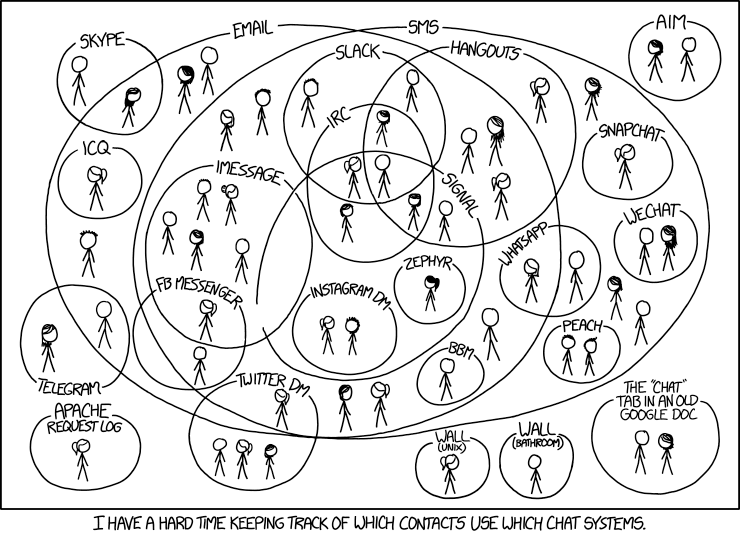This year is the 10th anniversary of Take Off, a conference about innovation and entrepreneurship in tech. At the time, the Startup movement was growing in Portugal and several small companies were being started at the time. Some of them are no longer active, but that entirely fine. Nowadays the startup community is well established and there is plenty of funding for testing your business idea.
On the computing side, we now have Machine Learning, Deep Learning, cloud computing and raspberries pi almost for free. This is a fantastic time to be a computer engineer. Yet, I am disappointed for what we haven’t accomplished in the last 10 years. My main concern is the way internet services have became closed silos.
Most people have data on major sites like Facebook, Google and others. Sure Google allows users to export their data but the main problem is that people have their services at these sites. If I want to contact my Facebook friends, I have also to be on Facebook. This service lock-in results in the following 2017 chat service problem:
Almost 10 years ago I was dabbling with XMPP which was a protocol designed to support federated services. A Google user should be able to talk to a Facebook user or anyone who would run their own XMPP server. Just like you are able to call numbers on other mobile networks. Google dropped XMPP support on Hangouts, replacing it with a binary alternative citing performance issues (despite binary XMPP). Facebook deprecated its internal XMPP API. Microsoft removed the interoperability with other chat services. Now I am stuck with Facebook Messenger, Skype on all of my machines, Slack on my work laptop, Whatsapp, Telegram and a few others on my iPhone. I miss having everything on Adium.
The solution for aggregating messenger services is Franz. While Adium was a native app, Franz is a electron app which is a webkit wrapper around the web version of each platform. Nothing more than a chromeless browser with tabs. And this is representative of the way desktop computing is heading: apps are being written in web technologies for portability, and being wrapped in electron for desktop apps.
Here is a list of services I use and desperately need a native version:
- Slack
- Visual Studio Code (I am still relying on good old Textmate, but miss plugins for recent technologies)
- Messenger
- Spotify
- Jira
Maybe I am really old-school in my preference for native applications, that feel responsive, integrate well with other apps (drag and drop is a pain) and that boot in no time. Oh and that work offline, which is something most of them do not do.
I applaude Apple and Microsoft efforts in continuity between mobile phones, tablets, pcs, tvs, but application makers are not following suit. I still receive plenty of duplicated notifications across my devices and I cannot pick on one computer what I was doing in the other. Which sucks for my two-laptop system nowadays. But I’ll leave that for a second post.

